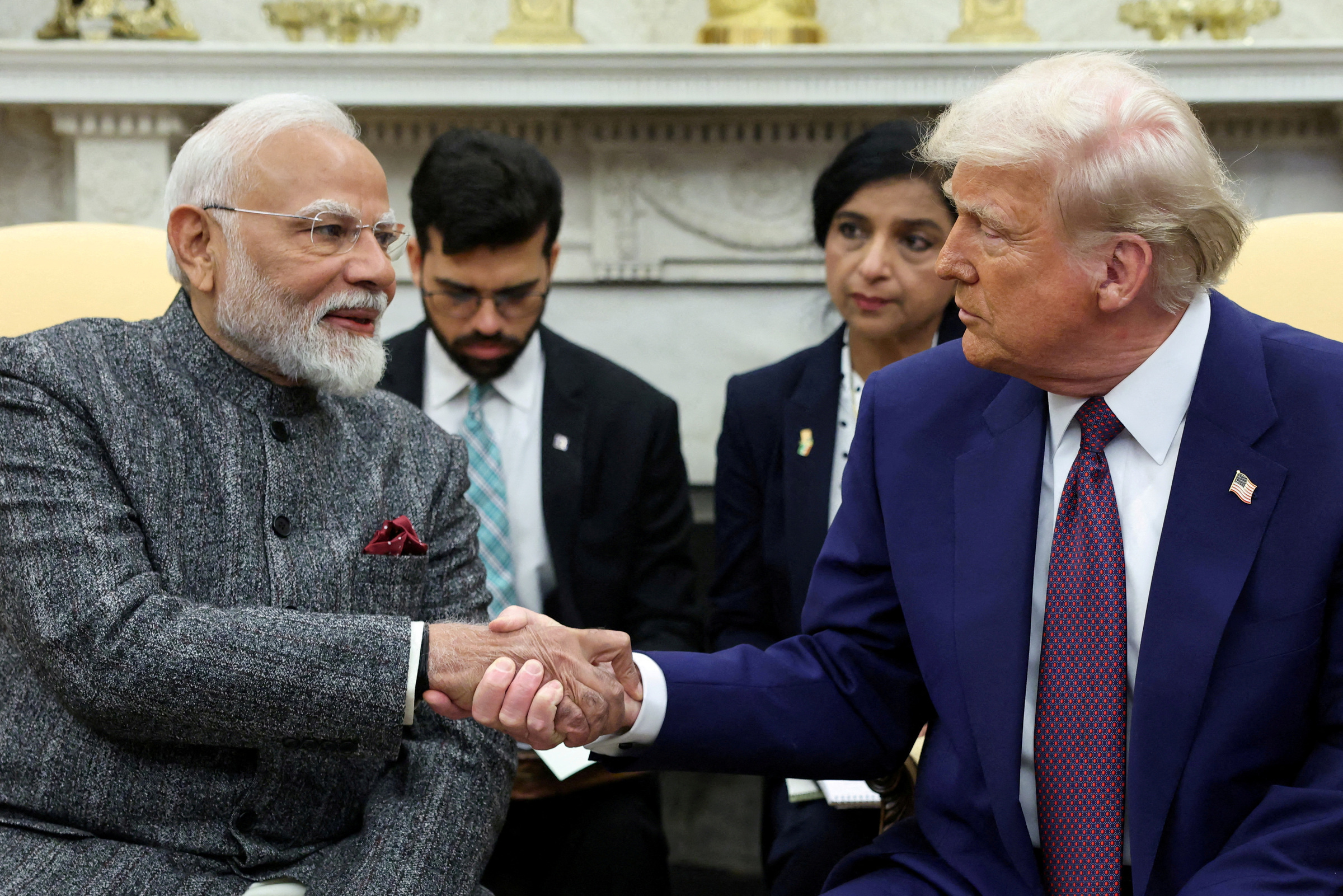The world's fifth-largest economy, India, is now among the countries facing the highest US tariffs globally. On 6/8, US President Donald Trump signed an executive order imposing an additional 25% tariff on Indian imports, citing India's continued purchase of Russian oil. This move could jeopardize the US relationship with one of its most important trading partners and increase prices on various goods.
Earlier this month, New Delhi signaled it would retaliate against the US tariffs. India's Ministry of External Affairs recently complained that the country was being treated unfairly for purchasing Russian oil when many other nations are doing the same without facing punitive tariffs.
For example, China, another major buyer of Russian oil, currently faces a 30% import tariff. However, Mr. Trump has warned of imposing similar tariffs on China soon.
 |
US President Donald Trump and Indian Prime Minister Narendra Modi shake hands at the White House on 13/2. Photo: Reuters |
US President Donald Trump and Indian Prime Minister Narendra Modi shake hands at the White House on 13/2. Photo: Reuters
The US-India trade deficit has increased significantly over the past decade, but this is because both countries have doubled their imports from each other. Last year, the US purchased $87 billion worth of goods from India while exporting only $42 billion, according to the US Department of Commerce. When Mr. Trump imposed tariffs on China during his first term and earlier this year, US businesses shifted production to India.
Washington's primary imports from New Delhi include pharmaceuticals, telecommunications equipment, smartphones, and textiles. However, smartphones are currently exempt from reciprocal tariffs.
For products already subject to industry-specific tariffs, the new tariffs will not be cumulative. For instance, aluminum and steel from India will remain at 50%, like other countries, rather than increasing to 100%.
Conversely, key US exports to India include petroleum, chemicals, and aerospace components. These sectors could face substantial losses if New Delhi retaliates with tariffs on US goods.
Ha Thu (Reuters, CNN)












